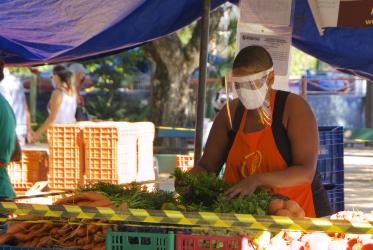Displaying 1 - 20 of 76
Dr Abuom reflects on women of faith as healers of creation
05 October 2021
Rethinking Ecological Relationships in the Anthropocene era
11 - 13 February 2021
Healing Together
A Facilitator’s Resource for Ecumenical Faith and Community-Based Counselling
15 October 2020
Freedom of religion rooted in justice
06 March 2020
Fr Alexi - a peacemaker in Syria
21 December 2018
A moment in ‘Time’: an interreligious vision in Erlangen
20 December 2018
Walking together against hatred and violence
26 February 2018
G20 summit: call to pray for peace in Hamburg
07 July 2017














